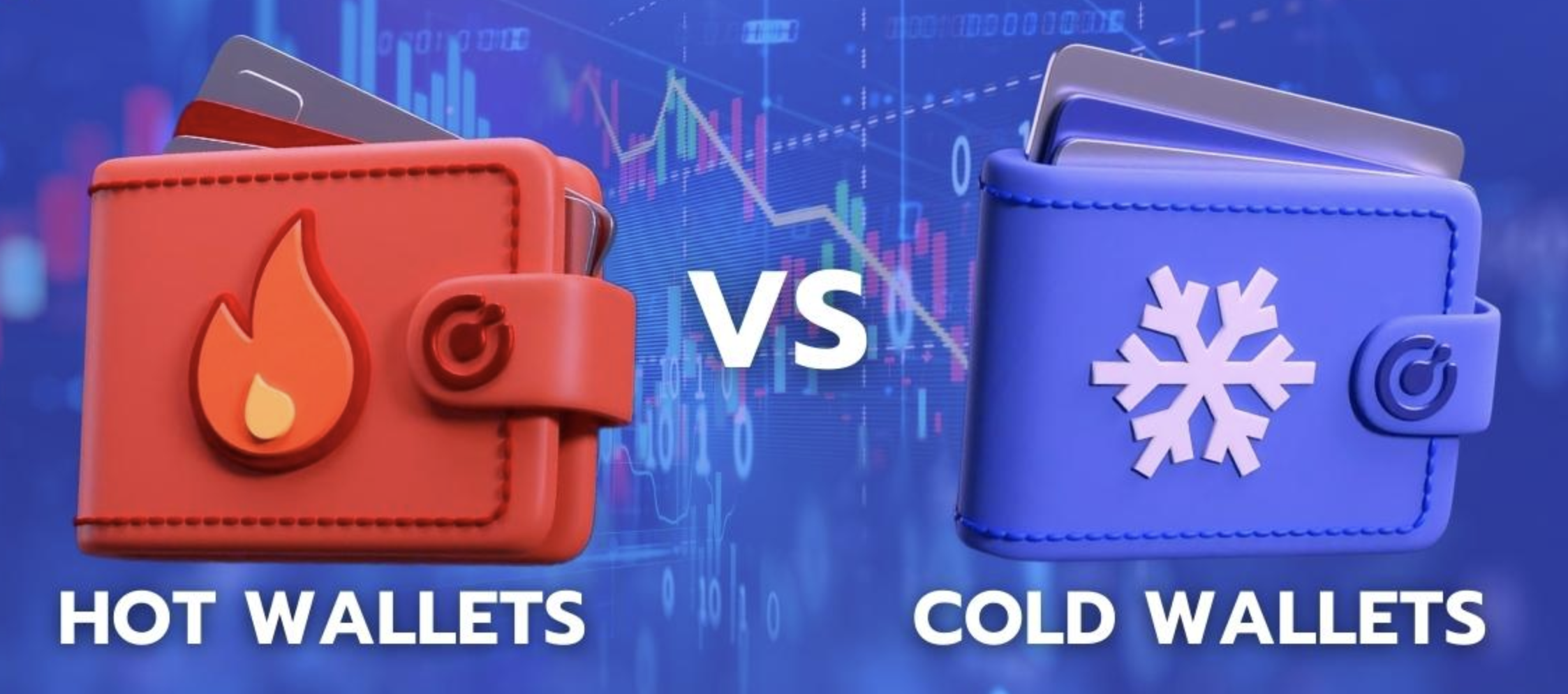Cryptocurrencies: Hot versus Cold Wallets

In the world of cryptocurrencies, securing your digital assets is of upmost importance. Whether you are a seasoned investor or a newcomer to blockchain technologies, understanding the key differences between hot and cold wallets is essential to protecting your investments. Both wallet types serve the same primary purpose, storing cryptocurrencies, but they differ significantly in how they operate, offering varying levels of accessibility and security.
A cryptocurrency wallet, often referred to as a “crypto wallet,” is a digital tool that allows users to store, manage, and interact with their cryptocurrency holdings. Rather than physically holding the cryptocurrency itself, a crypto wallet stores the private and public keys that are necessary to access and manage the cryptocurrency on the blockchain. These keys are crucial for sending and receiving digital assets and for verifying ownership.
Hot Wallet
A hot wallet refers to any cryptocurrency wallet that is connected to the internet. These wallets are typically more convenient for day-to-day transactions because they allow easy access to your digital assets. The most common types of hot wallets include mobile wallets such as MetaMask, which allow users to manage and transfer cryptocurrencies directly from their smartphones or browsers. Web wallets, hosted online by third-party platforms such as Binance or Coinbase, offer seamless integration with exchanges. Desktop wallets are another form of hot wallets, where software is installed on a computer to store and manage crypto assets locally, though still connected to the internet for ease of access.
Pros of Hot Wallets:
- Convenience: Immediate access to your funds for transactions, especially useful if you’re actively trading or making purchases.
- User-Friendly: Typically come with interfaces designed for easy navigation, making them ideal for users new to cryptocurrency.
- Integration with Exchanges: Many hot wallets can be linked directly to trading platforms, allowing for smooth and efficient buying, selling, and trading.
Cons of Hot Wallets:
- Security Risks: Since they are always connected to the internet, hot wallets are susceptible to hacking, phishing attacks, and other cyber threats. Users’ private keys, the critical pieces of cryptographic information that give access to funds, could be compromised if proper security measures aren’t in place.
- Centralization: Some hot wallets are custodial, meaning that a third party holds the private keys on your behalf, which could expose you to the risk of platform breaches or mismanagement.
Cold Wallet
A cold wallet refers to a wallet that remains offline, disconnected from the internet. Cold wallets are often considered the gold standard for long-term, secure cryptocurrency storage. By keeping private keys offline, cold wallets offer a higher level of protection against cyber threats. Hardware wallets, such as Ledger and Trezor, are popular examples of cold wallets. These devices store private keys offline and must be connected to a computer or phone, usually via USB, when conducting a transaction. However, they remain disconnected otherwise, ensuring enhanced security. Another type of cold wallet is the paper wallet, where the private and public keys are printed on paper. Though simple, this method is highly secure if stored correctly but carries risks of loss or damage. More advanced users may also consider air-gapped devices, specialized wallets that never connect to the internet and use QR codes or other offline methods to sign transactions.
Pros of Cold Wallets:
- Enhanced Security: By keeping the private keys offline, cold wallets drastically reduce the risk of hacking. These wallets are ideal for storing large amounts of cryptocurrency long-term, away from the reach of cybercriminals.
- Control: With non-custodial cold wallets, you maintain full control over your private keys, ensuring that no third party can access or manage your assets.
- Tamper Resistance: Hardware wallets often come with physical layers of security, such as PIN codes or passphrases, making unauthorized access even more difficult.
Cons of Cold Wallets:
- Less Convenient: Accessing funds stored in a cold wallet can be cumbersome, particularly if you are engaging in frequent trading or transfers. For instance, conducting a transaction with a hardware wallet requires connecting the device and verifying each step, which can slow down the process.
- Higher Initial Cost: High-quality cold wallets, particularly hardware devices, can be relatively expensive compared to the free or low-cost alternatives of hot wallets.
Choosing the Right Wallet
Choosing between a hot or cold wallet often depends on how you intend to use your cryptocurrencies. If you are an active trader or frequently transact using digital assets, a hot wallet may be the more practical option, provided you take additional security measures like two-factor authentication and strong password management. On the other hand, if you view cryptocurrency as a long-term investment and prioritize security over immediate access, a cold wallet is likely the better choice. Many experienced users maintain a combination of both, using a hot wallet for daily transactions while storing the bulk of their assets in a cold wallet, safely offline.
A hybrid approach provides the best of both worlds, offering security and convenience. By keeping smaller amounts in a hot wallet for daily use and storing the majority in a cold wallet, users minimize the risks associated with online exposure while ensuring they have access to liquidity when needed.
Conclusion
Whether you choose a hot wallet, a cold wallet, or a combination of both, the key is understanding your needs and the level of security required to protect your digital assets. As the cryptocurrency landscape evolves, taking a proactive approach to wallet security is essential for safeguarding your future in this digital age.
References and Further Reading
-
David Rodeck (2024). “Best Crypto Wallets Of September 2024”. Forbes. https://www.forbes.com/advisor/investing/cryptocurrency/best-crypto-wallets/
-
Gabriel O. Rodriguez Cruz (2024). “11 Best Crypto Wallets of September 2024”. Money. https://money.com/best-crypto-wallets/
-
Ethereum Foundation. “Holding the keys to your digital future”. https://ethereum.org/en/wallets/
